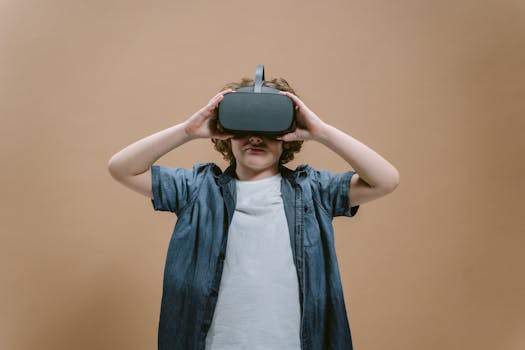
The Future of Education: What 2025 Holds
Introduction to the Future of Education
The Future of Education: What 2025 Holds is an exciting and rapidly evolving field. The education sector has witnessed significant transformations in recent years, driven by advances in technology, changing learner needs, and the shifting landscape of the global economy. As we look ahead to 2025, it is clear that the future of education will be shaped by innovative technologies, pedagogical approaches, and societal trends. In this article, we will explore the key developments that will shape the future of education in 2025 and beyond.
Technological Advancements in Education
One of the most significant drivers of change in education is technology. The integration of artificial intelligence, blockchain, and the Internet of Things (IoT) will continue to transform the way we learn, teach, and interact with each other. For instance, AI-powered adaptive learning platforms will become increasingly prevalent, providing personalized learning experiences tailored to individual students’ needs and abilities. Virtual and augmented reality technologies will also play a major role in creating immersive, interactive, and engaging learning environments.
Artificial Intelligence in Education
Artificial intelligence (AI) is poised to revolutionize the education sector in 2025. AI-powered systems will be able to analyze vast amounts of data, providing insights into student learning patterns, preferences, and outcomes. This will enable educators to develop targeted interventions, optimize curriculum design, and create personalized learning pathways. Additionally, AI-driven chatbots and virtual teaching assistants will help support student inquiries, freeing up instructors to focus on high-touch, human-centric aspects of teaching.
Blockchain in Education
Blockchain technology is another key innovation that will impact education in 2025. By utilizing blockchain-based platforms, educational institutions will be able to create secure, transparent, and tamper-proof records of student achievement, credentials, and certifications. This will not only enhance the integrity of academic records but also facilitate the verification and recognition of skills and qualifications across borders and industries.
Pedagogical Innovations in Education
In addition to technological advancements, pedagogical innovations will also play a crucial role in shaping the future of education in 2025. There will be a growing emphasis on competency-based progression, social-emotional learning, and interdisciplinary approaches to education. Educators will focus on developing students’ critical thinking, creativity, and collaboration skills, as well as their emotional intelligence, empathy, and well-being.
Competency-Based Progression
Competency-based progression is an approach to education that focuses on students’ demonstration of specific skills and knowledge rather than their age or grade level. This approach will become more widespread in 2025, allowing students to progress at their own pace and take ownership of their learning. By emphasizing mastery of specific competencies, educators can ensure that students are well-prepared for an increasingly complex and rapidly changing world.
Social-Emotional Learning
Social-emotional learning (SEL) is another key area of focus in education in 2025. SEL programs will be integrated into curricula to help students develop essential life skills, such as self-awareness, self-regulation, and relationships skills. By prioritizing SEL, educators can foster a supportive and inclusive learning environment, promoting students’ mental health, well-being, and academic success.
Conclusion and Future Directions
In conclusion, the future of education in 2025 will be characterized by technological innovations, pedagogical advancements, and a growing emphasis on student-centered, personalized learning. As educators, policymakers, and stakeholders, it is essential that we work together to harness the potential of these developments, ensuring that all students have access to high-quality, inclusive, and effective learning experiences. By doing so, we can empower the next generation of leaders, innovators, and citizens to thrive in an increasingly complex, interconnected, and rapidly changing world.
